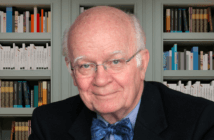Church Consultant Joel Snider says a critical characteristic of healthy churches is the presence of “necessary leaders” who can make hard decisions in the right spirit and act in the best interest of the congregation, even when facing criticism. He outlines six characteristics of such leaders and key questions for identifying your church’s necessary leaders.
What are the characteristics of necessary congregational leaders?
1. They understand their proper role in the church.
We all use the expression “my church,” but necessary leaders recognize that this statement reflects participation, not ownership. In multiple letters, the Apostle Paul tells us that Christ is the head of the church. Therefore, necessary leaders always remember Christ has entrusted the church to them as human stewards of its mission and relationships. As stewards, they seek God’s will and reflect the spirit of Christ in how they lead. Unhealthy leaders assert control over the congregation and its decisions, assuming that whatever they want must be God’s will for the church.
2. They function according to biblical standards.
A wise mentor once told me there is no difference between doing the wrong thing and doing the right thing the wrong way. In the Kingdom of God, leaders are governed by the standards of Christ, not simple pragmatism. Necessary leaders practice principles such as: speaking the truth in love (Eph. 4:15); handling disputes forthrightly (Matt. 18:15ff); and operating openly (I John 1:5ff).
3. They have high emotional intelligence (EQ).
Daniel Goleman reminds us that the greatest factor influencing effectiveness in any field is emotional intelligence. Necessary leaders possess the two major components of EQ: self-awareness and empathy. Self-awareness is vital because we humans can easily confuse our motives with God’s will. Leaders with strong self-awareness can monitor their own motives, emotions, and reactions. Because they know themselves accurately, people with high EQ can manage their own actions. They act and respond according to their principles instead of reacting emotionally. They also demonstrate empathy by keeping the good of the congregation in mind. Empathy allows them to read correctly the emotional climate in a crisis and to anticipate and appreciate the reactions of others.
4. Others recognize their integrity.
Members trust necessary leaders because they have demonstrated in a variety of settings that they act fairly, make wise decisions, and keep their word. Time after time, I have heard church members say, “I didn’t agree with that action, but I trust the people who made it.” Trustworthiness is more important than position or title. It is earned over long periods of time and after repeated instances of wisdom, transparency, and charity.
5. They don’t bully and refuse to be bullied.
Edwin Friedmann says most organizations act on the emotional level of their most immature participants. These are the people who threaten, demand, nag, whine, and manipulate (all of them are forms of bullying) to get their way. By their very nature, the leaders needed to offset these dynamics neither use these tactics nor do they give in to them.
6. They act.
In moments of crisis or confusion, necessary leaders speak up, step forth, or make hard decisions. Based on their sense of stewardship and operating out of their understanding of biblical principles, they take responsibility and act.
Who are your necessary leaders?
If you are trying to discern who your necessary leaders might be, consider these questions.
- From what people do others routinely seek opinions? Why? Are they trusted or merely opinionated?
- Name a recent conflict and describe how it was addressed. What members of the laity were involved and how did they function? Who was mature and principled?
- Name a time something unpopular was accomplished or addressed. Who did the congregation trust in the decision-making process?
- Who can be trusted not to act on self-interest alone? Who consistently acts on Christian principles?
- Who would you say has genuine spiritual maturity?
These questions could be asked in an interview with a committee designated by the church to secure a new minister. Or they could be used to create a list of potential necessary leaders for further development. I believe there is no more important task than recognizing and cultivating a culture of necessary leaders. Sooner or later, the health and direction of your congregation will depend on them.
This article is condensed from Joel Snider’s article “Necessary Leaders” that appeared in the e-newsletter of the Center for Healthy Congregations September 18, 2018. Used by permission.
Related Resources
- More Church Leaders | Stronger Church Leaders Video Tool Kit
- 50 Ways to Multiply Your Church’s Leadership Capacity, a free resource from the Lewis Center
- How to Grow the Leaders Your Church Needs to Thrive by Michael Kurtz






